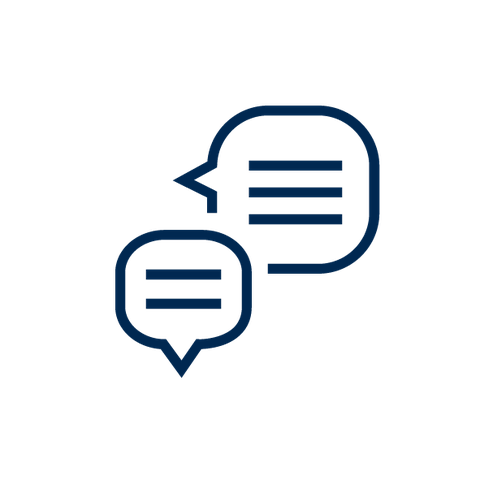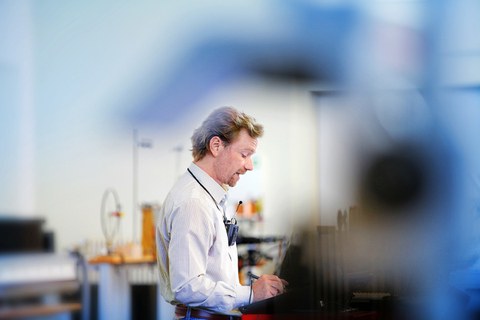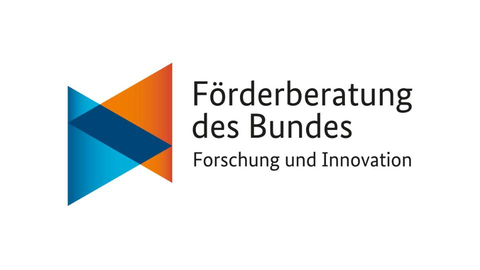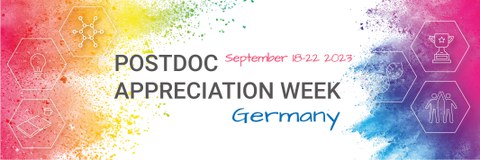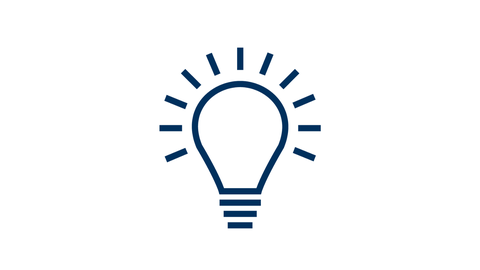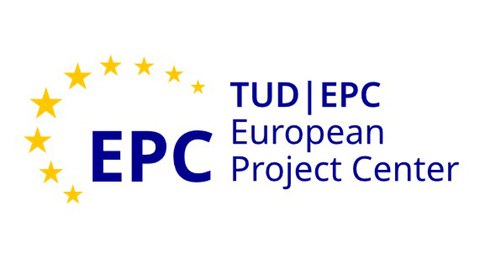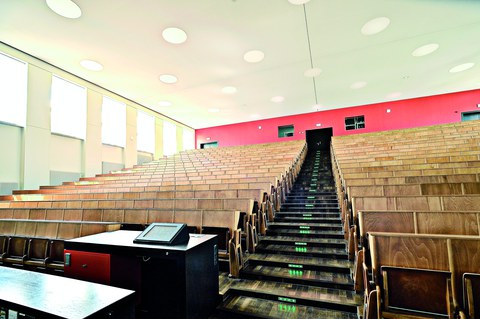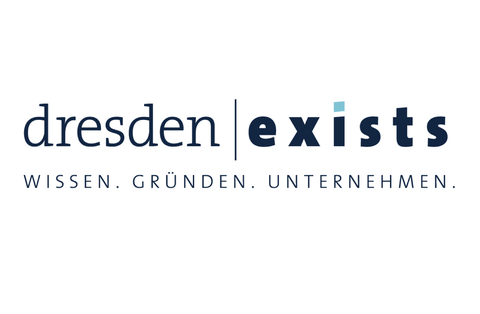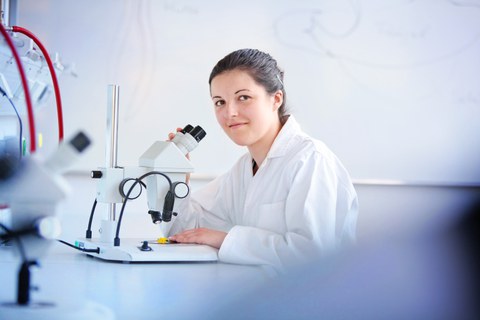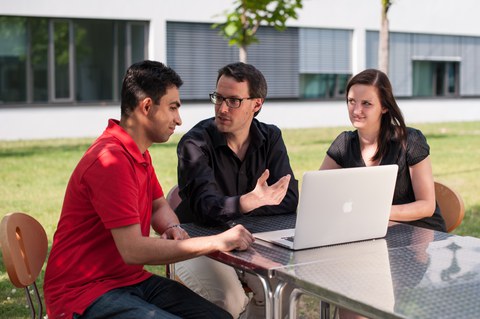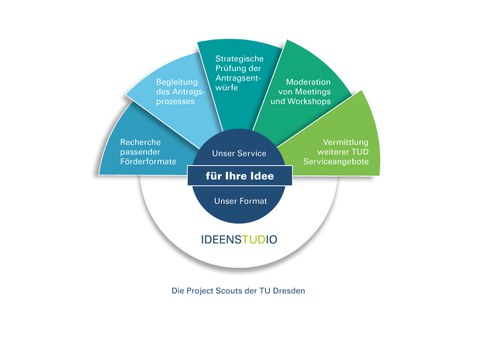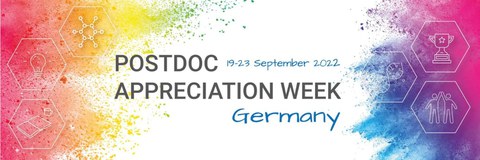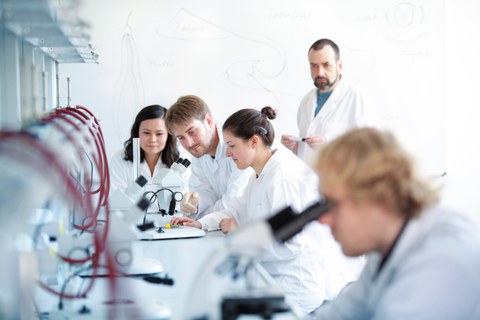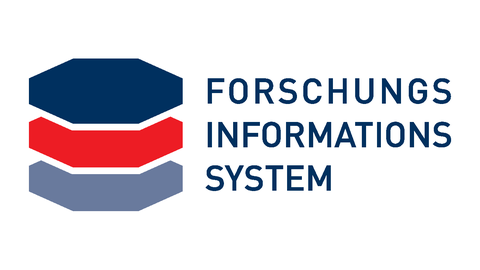SPOTLIGHT ON | Postdoc Talks
Inhaltsverzeichnis
Das ABC der Wissenschaft
Ist die Entscheidung für eine akademische Laufbahn gefallen, ist die Postdoc-Zeit
die entscheidende Phase, in welcher der Grundstein für eine erfolgreiche Karriere in der Wissenschaft gelegt wird.
Dazu gehört unter anderem, ein eigenständiges wissenschaftliches Profil zu entwickeln, durch Publikationen, Projekte und Kooperationen sichtbar zu werden, aber auch Lehrerfahrung zu sammeln und Drittmittel einzuwerben.
Damit Sie diese Herausforderungen bestmöglich meistern, unterstützt die TU Dresden Sie mit zahlreichen Services, Angeboten und Programmen.
Postdoc Talks | SPOTLIGHT ON
In unseren Postdoc Talks werfen wir ein Schlaglicht auf karriererelevante Aspekte der Postdoc-Phase. Referent:innen teilen ihr Wissen und (Insider-)Tipps und beantworten Ihre Fragen.
Unsere Postdoc Talks finden i. d. R. jeden zweiten Dienstag im Monat, jeweils von 11.30 bis max. 13.30 Uhr online via Zoom statt.
Die Talks werden nicht aufgezeichnet.
Postdoc Talks 2026 | Termine & Anmeldung
Bitte registrieren Sie sich via Zoom (Link zur Anmeldung).
Der Talk findet in englischer Sprache statt.
- Ihre haben Sie Promotion vor zwei bis maximal 7 Jahren abgeschlossen?
- Möchten Sie selbständig arbeiten und eine eigene Arbeitsgruppe aufbauen?
- Wollen Sie Führungsaufgaben in einem bahnbrechenden Grundlagenforschungsprojekt übernehmen?
Dann könnte ein ERC Starting Grant genau das Richtige für Sie sein.
In diesem Postdoc Talk erhalten Sie vom Team des European Project Center (EPC) kurz und kompakt die wichtigsten Informationen, wann und wie Sie sich erfolgreich für einen ERC-Starting Grant bewerben können.
Darüber hinaus erhalten Sie wertvolle Tipps von Dr. Anna Czarkwiani, die erfolgreich einen ERC-Starting Grant eingeworben hat.
...................................................
Save the Date | ERC Masterclass 2026 for Starting Grants
Organisiert von der Graduiertenakademie und dem European Project Center
Die ERC Masterclass 2026 bietet eine hervorragende Gelegenheit für alle Nachwuchswissenschaftler:innen, die sich optimal auf die Bewerbung für ein ERC Starting Grant vorbereiten und sich intensiv mit den Anforderungen und Erwartungen der ERC Starting Grants auseinandersetzen möchten.
Die ERC Masterclass findet vom 15. April bis zum 11. Mai 2026 statt.
- Mi, 15. April: Onboarding (online)
- Fr, 17. April Termin 1 (Präsenz)
- Mo, 11. Mai: Termin 2 (Präsenz)
Alle weiteren Informationen finden Sie demnächst auf unserer Webseite.
Wir bitten noch um etwas Geduld!
Bitte registrieren Sie sich via Zoom (Link zur Anmeldung)
Der Talk findet in englischer Sprache statt.
Wo Menschen zusammenarbeiten, gibt es Konflikte. Wenn sie konstruktiv bearbeitet und produktiv genutzt werden, können sie wichtige Impulse für die Zusammenarbeit geben und zur persönlichen und organisationalen Weiterentwicklung beitragen. Konflikte haben jedoch ein schlechtes Image; sie werden geleugnet, vermieden, verdrängt und entwickeln dadurch destruktive Tendenzen, die die Zusammenarbeit massiv belasten können.
Unser Postdoc Talk wird sich mit folgenden Fragen befassen:
- Welche Konfliktfelder sind typisch für den Wissenschaftsbereich?
- Wie wirken sich Rahmenbedingungen und wissenschaftliche Arbeitsethik auf die Entstehung von und den Umgang mit Konflikten zwischen Wissenschaftlern aus?
- Welche Auswirkungen können eskalierende Konflikte auf die Beteiligten und das Arbeitsumfeld haben?
- Und schließlich: Wie kann ein präventiver, konstruktiver und deeskalierender Umgang mit Konflikten im Wissenschaftsalltag gelebt werden?
Unsere Referentin
Dr. Katharina Ulbrich ist promovierte Soziologin und seit 2013 am Aufbau der Graduiertenakademie an der TU Dresden beteiligt. Als systemischer Coach, (Online-)Trainerin und Mediatorin trägt sie dazu bei, ein breites Beratungsangebot für Nachwuchswissenschaftlerinnen und -wissenschaftler zu etablieren, Unterstützungsangebote für Konflikte in der akademischen Qualifizierung zu entwickeln. Neben Coaching-, Beratungs- und Mediationssitzungen führt sie auch Workshops zu Themen wie wissenschaftliches Schreiben, Kommunikation und Konfliktmanagement, GWP sowie psychische Gesundheit durch.
Interaktiver Vortrag in englischer Sprache
Bitte registrieren Sie sich via Zoom (Link zur Anmeldung).
Das Wissenschaftssystem zeichnet sich durch eigentümliche Institutionen und hierarchische Organisationsformen aus, in denen häufig kontrollierende Instanzen fehlen und unklare Kompetenzen bestehen. Unabhängig davon, ob Sie auf den oberen, mittleren oder unteren Ebenen Ihrer Einrichtung aktiv sind, machen Sie früher oder später die Erfahrung, dass Fachkompetenz und sachliche Auseinandersetzung allein nicht zum Ziel führen.
In diesem interaktiven Postdoc Talk werden Sie mit Konzepten der mikropolitischen Theorie vertraut gemacht und können mikropolitische Spiele im Systemkontext besser erkennen und einordnen.
Sie erhalten erste Anregungen zur Reflexion eigener Rollen, Handlungsspielräume und Grenzen.
So können das eigene autonome Handeln gefördert und Strategien zur Erreichung eigener Ziele besser entwickelt werden.
Unsere Referentin
Dr. Veronika Fuest ist zertifizierte Beraterin (systemische Transaktionsanalyse) und arbeitet seit 2015 als Coach für Einzelpersonen und Teams sowie als Trainerin und Moderatorin. Sie verfügt über tiefgreifende Erfahrungen in der Wissenschaft. Sie war u. a. bis 2008 als Sachverständige für das BMBF, die DFG und die VolkswagenStiftung aktiv. Ab 2008 übernahm sie an der Universität Göttingen verschiedene Aufgaben im Wissenschaftsmanagement, darunter Beratung, interne Organisationsentwicklung und bis 2018 die Leitung der Ombudsstelle für gute wissenschaftliche Praxis.
Bitte registrieren Sie sich via Zoom (Registrierungslink).
Der Talk findet in englischer Sprache statt.
Unlock Your Funding Potential with Research Connect
Securing third-party funding is a crucial step in advancing your independent research career. To help you navigate the complex landscape of grants and proposals, we invite you to an online training session on Research Connect - the funding database available to all TU Dresden members.
Stop searching and start finding. This Postdoc Talk is designed to equip you with the strategic tools to quickly and conveniently identify the right funding formats.
What you will learn:
- Gain an overview of regional, national, and international funding opportunities tailored to your profile.
- Learn to set specific filters, save searches, and access detailed info on requirements and funding amounts.
- Set up topic-specific newsletters and editable reminders so you never miss a call deadline.
This session is ideal for all postdocs responsible for acquiring third-party funding who want to streamline their search for the next big opportunity. So join us to professionalize your funding strategy and take your research projects to the next level.
Your Trainer
Dr.-Ing. Rico Hickmann serves as a Project Scout at TU Dresden, where he plays a pivotal role in supporting researchers in developing and securing third-party funding for research projects. With a background in mechanical engineering and expertise in textile machinery and high-performance material technology, Dr. Hickmann brings extensive experience to his position as a research facilitator.
Aldo Cavalcanti is an experienced international business development manager currently working for Idox Grants in Amsterdam. He specializes in software solutions for research funding (e.g., ResearchConnect) and conducts international training courses for universities.
Postdoc Talks 2025
Bitte registrieren Sie sich via Zoom (Link) | Eine Anmeldung ist nicht mehr möglich.
Der Talk findet von 11.30 Uhr - 12.30 Uhr in deutscher Sprache statt.
Unser Postdoc Talk beginnt mit einer Reflexion über die Begriffe Erfolg, Misserfolg und Scheitern, um ein gemeinsames Verständnis dieser Konzepte zu schaffen. Dabei wird zwischen der individuellen Perspektive und der Sichtweise des „Systems Wissenschaft“ unterschieden, da diese oft nicht übereinstimmen.
Es wird analysiert, welche Faktoren zu „Erfolg“ oder „Misserfolg“ in der Wissenschaft beitragen und wie diese miteinander interagieren. Im Fokus steht dabei die zentrale Rolle des Peer-Review-Systems, das durch das Pareto-Prinzip geprägt ist und entscheidende Auswirkungen auf individuelle Karrieren hat.
Abschließend werden konkrete Strategien vorgestellt, wie einzelne Misserfolge in langfristigen Erfolg umgewandelt werden können. Anhand der drei Leitfragen –
- Was kann ich aus meinem Ergebnis lernen?
- Wie kann ich mein Ergebnis kommunizieren?
- Welche Schlüsse ziehe ich aus meinem Ergebnis?
- wird aufgezeigt, wie wissenschaftliche Rückschläge pragmatisch eingeordnet und genutzt werden können. Ziel des Talks ist es, den Teilnehmenden praktische Werkzeuge an die Hand zu geben, um Misserfolge bewusst einzuordnen und selbstbestimmt den nächsten Karriereschritt zu gestalten.
Unser Referent
Dr. Oliver Grewe ist Neurowissenschaftler, Wissenschaftsmanager und Coach mit langjähriger Erfahrung. Nach seinem ersten Postdoc stieg er als Referent bei der Studienstiftung des deutschen Volkes ins Wissenschaftsmanagement ein und setzte seine Karriere bei der Wissenschaftlichen Kommission Niedersachsen fort. Heute ist er wissenschaftlicher Programmleiter bei der VolkswagenStiftung, wo er innovative Projekte fördert und den Dialog zwischen Wissenschaft und Gesellschaft stärkt. Als Coach unterstützt er Nachwuchswissenschaftler:innen dabei, ihre Karrierewege zu gestalten und komplexe Herausforderungen zu meistern
Bitte registrieren Sie sich via Zoom. (Eine Anmeldung ist leider nicht mehr möglich.)
Der Talk findet in englischer Sprache statt.
Erfolgreiche Fördermittelanträge sind unabdingbar für eine Karriere in der Wissenschaft. Insbesondere das Emmy-Noether-Programm und das Heisenbergprogramm der DFG sind Exzellenzprogramme, die die Karriere von Wissenschaftlern sehr stark positiv prägen und fördern können. Hier zählt neben herausragenden Publikationen und tollen Projektideen auch ein Gespür für die Entscheider.
In diesem Talk werden Entscheidungsprozesse der DFG erläutert, Entscheider identifiziert und eine Strategie für deren gezielte Ansprache im Antrag vorgestellt.
Unser Referent
Dr. Christian Lange ist Project Scout an der TU Dresden und betreut Forschende in Sachen Drittmittelanträge.
Please register via Zoom (link).
The talk will take place in English from 11.30 am to 1.30 pm.
Join us for our second Postdoc Talk Special this year, where we are teaming up for a second time with our EUTOPIA partner and colleagues from the Vrije Universiteit Brussel (VUB) to explore career paths outside academia.
Career Elevator: The only way is up!
In today’s job market, knowing how to make the most of your PhD and Postdoc experience is key to finding success. This Postdoc Talk will feature two researchers who will share their personal career journeys and insights:
- Get tips on transitioning from academia to a career in the non-academic job market.
- Learn about the transferable skills you’ve gained during your PhD/Postdoc and how to polish them for future roles.
- Discover strategies for ongoing career reflection and growth, so you’re always ready for new opportunities.
We’ll wrap things up with an interactive Q&A session, during which you can ask your questions and get tips for your career path.
Our Guest Speakers
TUD | Felix Irrgang is a doctoral candidate in chemistry (almost finished) at the TUD, a former participant in the Future Career Program: Business, and currently an innovation engineer at DAS Environmental Expert GmbH.
VUB | Michael Peeters holds a PhD in Applied Physics and Photonics (VUB) and, as current VP & Sector Lead Connected Computing at imec, Michael Peeters combines academic excellence with leading R&D experience in connectivity and computing, while also being affiliated with the University of Antwerp, KU Leuven, and TU Dresden.
Bitte registrieren Sie sich via Zoom
Der Talk findet von 11.30 - 13.00 Uhr in englischer Sprache statt.
Join us for this special Postdoc Talk because this time, we're not only celebrating the Postdoc Appreciation Week. We are also partnering up with our EUTOPIA partner and colleagues from the Vrije Universiteit Brussel (VUB) to explore how embracing international experiences can significantly enhance your academic success.
In today's interconnected research landscape, engaging with international opportunities is essential. Collaborating across borders, participating in global conferences, and building a diverse network can profoundly influence your research and career trajectory.
Hear firsthand accounts from accomplished researchers who have successfully navigated international paths, gain practical strategies for building your global profile, and learn how to overcome common challenges.
Our Guest Speakers
Jun.-Prof. Dr.-Ing. Giang Nguyen
Junior Professorship of Haptic Communication Systems, Cluster of Excellence CeTI (Center for Tactile Internet with Human-in-the-Loop) at TU Dresden and EUTOPIA Young Leader.
Prof. Jolien Gijbels
Assistant Professor of History, Vrije Universiteit Brussel, and member of the SHOC research group.
Im September geht es weiter mit unseren Postdoc Talks.
Wir wünschen Ihnen einen wunderbaren Sommer!
Bitte registrieren Sie sich via Zoom (Link zur Anmeldung)
Der Talk findet von 11.30 - 12.30 Uhr in englischer Sprache statt.
In diesem Postdoc Talk beleuchten wir die Interessenvertretung von Postdoktorand:innen sowohl auf universitärer Ebene (Graduiertenakademie/Postdoc Center) als auch auf nationaler Ebene (NetPDR).
Im universitären Kontext stellen Dr. Samuel H. Cosper (aktueller Sprecher des Postdoc Councils) und Dr. Martin Zwanzig (aktueller stellvertretender Sprecher) den Postdoc Council der Graduiertenakademie/des Postdoc Centers vor und erläutern dessen Aufbau, Tätigkeitsfelder, Ausschüsse und weitere zentrale Aspekte.
Auf nationaler Ebene geben beide Einblicke in den NetPDR-Rat – ein Netzwerk verschiedener Postdoc-Vertretungen. Sie präsentieren unsere Ziele, organisatorischen Strukturen und strategischen Entwicklungspläne.
Ein besonderes Augenmerk liegt darauf, wie die Interessen von Postdocs wirksam vertreten werden könen, welche Wege zur Mitgestaltung offenstehen und wie Sie persönlich aktiv werden können.
Unsere Referenten
Dr. Samuel H. Cosper und Dr. Martin Zwanzig vereinen langjährige Erfahrung in der Interessenvertretung von Postdocs an der TU Dresden.
Mit ihren unterschiedlichen fachlichen Hintergründen (Psychologie/Neurowissenschaften bzw. Ökologie) bringen sie vielfältige Perspektiven und fundierte Expertise in der Gremienarbeit an deutschen wissenschaftlichen Einrichtungen ein.
Bitte registrieren Sie sich via Zoom (Link zur Anmeldung)
Der Talk findet in englischer Sprache statt.
Mit Hilfe KI-basierter Werkzeuge lassen sich viele Aufgaben und Abläufe vereinfachen und beschleunigen - so auch das Schreiben von Förderanträgen. In diesem Vortrag erfahren Sie, wie generative künstliche Intelligenz in verschiedenen Stadien des Antragsprozesses eingesetzt werden kann. Neben Best Practices und Prompting-Strategien lernen sie dabei außerdem mögliche Fallstricke kennen und erhalten einen Überblick über aktuelle Rahmenbedingungen für den Einsatz von KI-Tools im Wissenschaftskontext.
Unsere Expertin
Dr.-Ing. Lea Schönberger ist promovierte Informatikerin und freie Wissenschafts-kommunikatorin. Die Wahldortmunderin studierte Informatik mit Nebenfach Latein in Münster und Informatik in Dortmund, wo sie im Jahr 2023 ihre Promotion abschloss.
Seit 2020 widmet sie sich zusätzlich dem Studium der Komparatistik und klassischen Philologie in Bochum. Als Host des Podcasts „Informatik für die moderne Hausfrau“ bringt sie einem interessierten Publikum Inhalte mit Informatikbezug näher und bietet interessanten Frauen eine Bühne.
Bitte registrieren Sie sich via Zoom. (Link)
Mentoring ist ein erprobtes und erfolgreiches Instrument zur gezielten Nachwuchsförderung in der Wissenschaft. Es bietet vielfältige Vorteile für alle Beteiligten: Als Mentee erhalten Sie wertvolle Unterstützung, Feedback und Orientierung für Ihre persönliche und berufliche Entwicklung. Gleichzeitig können Mentor:innen ihre Führungskompetenzen ausbauen und Nachwuchstalente gezielt fördern. Gemeinsam können Netzwerke und Horizonte erweitert werden – ein echter Win-Win-Win.
In diesem Postdoc Talk beleuchten wir die Chancen, Möglichkeiten und Rahmenbedingungen des Mentorings genauer. Wir betrachten die Rollen, Kompetenzen und Aufgaben von Mentor:innen und Mentees und geben einen Überblick in den strukturierten Mentoring-Prozess.
Für eine gelingende Mentoring-Partnerschaft werden Ihnen hilfreiche Werkzeuge vorgestellt, die den Austausch und die Zielerreichung unterstützen. Lassen Sie sich diese Gelegenheit nicht entgehen, um sich mit den vielfältigen Facetten von Mentoring auseinanderzusetzen und sich für diesen Karriere-Booster zu begeistern!
Unsere Expertin
Simone Freitag ist promovierte Psychologin mit einem Schwerpunkt in Gesundheitspsychologie. Sie verfügt über umfangreiche Erfahrungen im wissenschaftlichen Bereich, einschließlich Planung und Durchführung von Forschungsprojekten, Publikationen, Forschungsanträgen und universitärer Lehre. Sie war wissenschaftliche Mitarbeiterin an der Universität Greifswald sowie am Robert-Koch-Institut und arbeitet aktuell beim Gemeinsamen Bundesausschuss (Gesundheitswesen) in Berlin.
Bitte registrieren Sie sich via Zoom (Link).
Anwendungsorientierte Forschung, praxisorientierte Lehre und Hochschulmanagement gehören zu den spannenden Aufgaben an einer Hochschule für angewandte Wissenschaften (HAW). Darüber hinaus müssen in den kommenden Jahren zahlreiche HAW-Professuren nachbesetzt werden. Der Karriereweg HAW-Professur bietet damit besonders interessante Perspektiven für promovierte Wissenschaftler:innen.
Der Postdoc Talk findet in Kooperation mit der Hochschule für Technik und Wirtschaft Dresden (HTW) statt und informiert darüber, welche Voraus- setzungen Sie mitbringen sollten und welche Wege es gibt, Berufungsfähigkeit zu erlangen.
Service für Forschende | European Project Center (EPC)
Bitte registrieren Sie sich via Zoom.
Der Talk findet in englischer Sprache statt.
- Ihre haben Sie Promotion vor zwei bis maximal 7 Jahren abgeschlossen?
- Sie möchten selbständig arbeiten und eine eigene Arbeitsgruppe aufbauen?
- Sie wollen Führungsaufgaben in einem bahnbrechenden Grundlagenforschungsprojekt übernehmen?
Dann könnte ein ERC Starting Grant genau das Richtige für Sie sein.
In diesem Postdoc Talk erhalten Sie vom Team des European Project Center (EPC) kurz und kompakt die wichtigsten Informationen, wann und wie Sie sich erfolgreich für einen ERC-Starting Grant bewerben können.
...................................................
Save the Date | ERC Masterclass 2025 for Starting Grants
Organisiert von der Graduiertenakademie und dem European Project Center
Die ERC Masterclass 2025 bietet eine hervorragende Gelegenheit für alle Nachwuchswissenschaftler:innen, die sich optimal auf die Bewerbung für ein ERC Starting Grant vorbereiten und sich intensiv mit den Anforderungen und Erwartungen der ERC Starting Grants auseinandersetzen möchten.
- Mitte Januar 2025: Ausschreibung
- 28. März 2025: Online-Onboarding-Session
- 4. & 11. April 2025: Zweitägiger Workshop
Alle weiteren Informationen stellen wir Ihnen zeitnah zur Verfügung.
Wir bitten noch um etwas Geduld!
Postdoc Talks 2024
Bitte registrieren Sie sich via Zoom.
Der Talk findet in englischer Sprache statt.
In diesem Postdoc Talk wollen wir für Signale psychisch belasteten Verhaltens im Arbeitskontext sensibilisieren und Ihr Handlungsrepertoire im Umgang mit psychisch belasteten Kolleg:innen stärken. Wichtige Anlaufstellen sowie interne/ externe Unterstützungsmöglichkeiten werden vorgestellt.
Unsere Referentin
Annett Schneider arbeitet als Psychologin im Gesundheitsdienst der TU Dresden. Im Rahmen Ihrer Tätigkeit in der psychologischen Beratungsstelle unterstützt Sie internationale Beschäftigte, mit psychisch herausfordernden Situationen umzugehen und eigene Lösungswege zu entwickeln.
Tipp
Eine Übersicht über unsere Angebote zum Thema Mental Health sowie weitere Links finden Sie auf unserer Webseite (Link).
Bitte registrieren Sie sich via Zoom. (Link)
Erfolgreiche Wissenschaftskommunikation kann helfen, Aufmerksamkeit auf die eigene Forschung zu lenken, Themen in die Gesellschaft zu tragen und Menschen für den eigenen Wissenschaftsbereich zu begeistern. Oftmals ist sie bei Projektförderungen Teil des Anforderungskatalogs.
- Doch wie kann gute Kommunikation außerhalb der wissenschaftlichen Community gelingen?
- Muss jetzt jede:r Science Slammer:in YouTuber:in oder TikTok Profi werden?
- Und was sind gute Strategien?
Über all diese Punkte und mehr diskutieren wir in unserem Talk.
Unsere Referenten
Benjamin Griebe aus dem Social-Media-Team der TU Dresden stellt vor, welche Social-Media-Kanäle es gibt und was erfolgreiche Wissenschaftskommunikation auszeichnet.
Prof. Dr. Simon Meier-Vieracker, Professor für Angewandte Linguistik an der TU Dresden. Mit seinem preisgekrönten TikTok-Kanal @fussballinguist erreicht er über 100.000 Follower:innen und vermittelt sprachwissenschaftliche Themen im innovativen Format #LinguisTikTok. Für seine Arbeit wurde er 2023 mit dem Goldenen Blogger Award ausgezeichnet.
Bitte registrieren Sie sich via Zoom. (Link)
Der Talk findet in englischer Sprache statt.
Die erfolgreiche Einwerbung von Drittmitteln gehört in der Wissenschaft zu den wichtigen Schlüsselkompetenzen. Erfolgreiche Förderanträge sind nicht nur entscheidend für die Finanzierung Ihrer Forschung, sondern auch ein wichtiger Faktor für Ihre Karriereentwicklung und Reputation.
- Sie überlegen Ihren ersten Drittmittelantrag zu schreiben oder sind gerade in der Ausarbeitung?
- Sie haben mal gehört, dass die Antragstext eine eigene Textsorte sind, wissen aber noch nicht so recht, was das für Sie und Ihren Antrag bedeutet?
- Auch der Rest des Drittmittelgeschäfts erscheint Ihnen wie ein Buch mit sieben Siegeln.
- Was passiert, wenn der Antrag einmal eingereicht ist?
- Wer sind die Gutachter und worauf achten sie?
Um diese und ähnliche Aspekte soll es im Postdoc Talk gehen. Im Anschluss an den Talk haben Sie die Gelegenheit, Ihre Fragen zu stellen und von den Erfahrungen der Referent:innen sowie anderer Teilnehmender zu profitieren.
Tipp
Sie benötigen noch weitere Unterstützung: Dann werfen Sie einen Blick in unser Qualifizierungsprogramm Career Track Academia oder bewerben Sie sich im kommenden Jahr für unser Grant Writing Boot Camp.
Unser Referent
Dr. Sebastian Schneider arbeitet als Project Scout an der TU Dresden und betreut Forschende aus dem Bereich GSW in Sachen Drittmittelanträge. Vor seiner Tätigkeit an der TUD war er als Förderreferent bei einer wissenschaftsfördernden Stiftung tätig und hat das "Fördermittelgame" aus der anderen Perspektive, der Perspektive der Fördermittelgeber, kennengelernt.
Dieser Talk wird ins nächste Jahr verschoben.
Save the Date: Dienstag, 11.03.25
Mentoring ist ein erprobtes und erfolgreiches Instrument zur gezielten Nachwuchsförderung in der Wissenschaft. Es bietet vielfältige Vorteile für alle Beteiligten: Als Mentee erhalten Sie wertvolle Unterstützung, Feedback und Orientierung für Ihre persönliche und berufliche Entwicklung. Gleichzeitig können Mentor*innen ihre Führungskompetenzen ausbauen und Nachwuchstalente gezielt fördern. Gemeinsam können Netzwerke und Horizonte erweitert werden – ein echter Win-Win-Win.
In diesem Postdoc Talk beleuchten wir die Chancen, Möglichkeiten und Rahmenbedingungen des Mentorings genauer. Wir betrachten die Rollen, Kompetenzen und Aufgaben von Mentor*innen und Mentees und geben einen Überblick in den strukturierten Mentoring-Prozess.
Für eine gelingende Mentoring-Partnerschaft werden Ihnen hilfreiche Werkzeuge vorgestellt, die den Austausch und die Zielerreichung unterstützen. Lassen Sie sich diese Gelegenheit nicht entgehen, um sich mit den vielfältigen Facetten von Mentoring auseinanderzusetzen und sich für diesen Karriere-Booster zu begeistern!
Unsere Expertin
Simone Freitag ist promovierte Psychologin mit einem Schwerpunkt in Gesundheitspsychologie. Sie verfügt über umfangreiche Erfahrungen im wissenschaftlichen Bereich, einschließlich Planung und Durchführung von Forschungsprojekten, Publikationen, Forschungsanträgen und universitärer Lehre. Sie war wissenschaftliche Mitarbeiterin an der Universität Greifswald sowie am Robert-Koch-Institut und arbeitet aktuell beim Gemeinsamen Bundesausschuss (Gesundheitswesen) in Berlin.
Bitte registrieren Sie sich via Zoom.
Der Talk findet in englischer Sprache statt.
Viele Nachwuchswissenschaftler haben ein Idealbild von universitären Einrichtungen und der Wissenschaft im Allgemeinen. In krassem Gegensatz zu diesen Erwartungen kann das tatsächliche akademische Arbeitsumfeld in hohem Maße missbräuchlich, ausbeuterisch und korrupt sein.
In diesem Talk wird Professor Daniel Leising (TUD, Psychologie) einige wichtige Konzepte vorstellen, die beim Versuch, dieses Problem zu verstehen, hilfreich sein können. Er wird auch Beispiele für die verschiedenen Formen unethischen Verhaltens im akademischen Bereich aufzeigen und abschließend einige Empfehlungen für notwendige Strukturreformen sowie „Notfallmaßnahmen“ geben, die Opfer von Machtmissbrauch ergreifen können, um sich zu schützen.
Wir bitten Sie, pünktlich zum Beginn des Talks zu erscheinen, damit Sie nichts verpassen. Vielen Dank!
Service für Forschende | European Project Center (EPC)
Bitte registrieren Sie sich via Zoom.
Der Talk findet in englischer Sprache statt.
- Ihre haben Sie Promotion vor zwei bis maximal 7 Jahren abgeschlossen?
- Sie möchten selbständig arbeiten und eine eigene Arbeitsgruppe aufbauen?
- Sie wollen Führungsaufgaben in einem bahnbrechenden Grundlagenforschungsprojekt übernehmen?
Dann könnte ein ERC Starting Grant genau das Richtige für Sie sein.
In diesem Postdoc Talk erhalten Sie vom Team des European Project Center (EPC) kurz und kompakt die wichtigsten Informationen, wann und wie Sie sich erfolgreich für einen ERC-Starting Grant bewerben können.
Bitte registrieren Sie sich via Zoom.
Der Talk findet in englischer Sprache statt.
.............................
Sie sind (internationaler) Postdoc und erwägen, aus der Wissenschaft in die Wirtschaft zu wechseln? Dann ist dieser Postdoc-Talk genau das Richtige für Sie!
Das Team von intap wird Ihnen nützliche Einblicke, praktische Tipps sowie clevere Strategien für einen erfolgreichen Wechsel in Industrie und Wirtschaft vorstellen – mit Fokus auf die Region Sachsen.
Diskutieren Sie mit uns über Ihre beruflichen Wünsche und Ziele und erfahren Sie mehr darüber, was Sie für Ihren nächsten Karriereschritt benötigen.
Die Referenten
intap vernetzt (internationale) Talente mit Unternehmen aus dem (High-) Techbereich
- in Sachsen und darüber hinaus.
Bitte registrieren Sie sich via Zoom.
Der Talk findet in englischer Sprache statt.
.................................
Welche Lehrkompetenzen fördern das Lernen – und meine akademische Karriere?
Hochschulen legen immer mehr Wert auf qualitativ hochwertige Lehre und setzen Lehrkompetenz bei ihrem akademischen Personal voraus. Damit wird die Fähigkeit, Lehren und Lernen an der Hochschule zu gestalten, zu einem wesentlichen Faktor für die akademische Karriere.
- Doch welche Lehrkompetenzen sind essenziell?
- Wie lassen sich diese weiterentwickeln?
- Und welche Unterstützungsmöglichkeiten gibt es dafür an der TUD?
Im Rahmen dieses Postdoc-Talks werden wir interaktiv das Feld der Lehrkompetenz beleuchten und an Beispielen praktisch verdeutlichen. Die Teilnehmenden werden dabei ihre eigenen Erfahrungen aus dem Bereich der Lehre teilen und Anregungen erhalten, wie sie Herausforderungen meistern, sich selbst weiterentwickeln und damit ihre akademische Karriere fördern können.
Unsere Referenten
Michael Sommer (ZiLL) und Matthias Heinz (HDS) sind Ihre Ansprechpartner für hochschuldidaktische Weiterbildungen an der TU Dresden. Die beiden Referenten bieten darüber hinaus hochschuldidaktische Beratungen, Hospitationen, Coachings wie auch qualitativen Lehrevaluationen an und unterstützen Sie didaktisch bei der Entwicklung von Curricula.
Das Zentrum für interdisziplinäres Lernen und Lehren (ZiLL) ist erste Anlaufstelle rund um das Thema Lehre und verantwortet das hochschuldidaktische Weiterbildungs-programm an der TU Dresden, das in enger Abstimmung mit dem Hochschuldidaktischen Zentrum Sachsen (HDS) erstellt wird.
Postdoc Talks 2023
Bitte registrieren Sie sich via Zoom.
Sie planen ein anspruchsvolles Forschungs- oder Entwicklungsprojekt
und Förderung ist für Sie noch Neuland?
Sie wissen nicht, ob es ein passendes Förderangebot für Ihr Vorhaben gibt
und was man grundsätzlich beachten sollte?
Die Förderberatung „Forschung und Innovation“ des Bundes ist zentrale Erstanlaufstelle für Fragen zur Forschungs- und Innovationsförderung der Bundesregierung.
Im Talk werden die Forschungsstruktur des Bundes sowie Möglichkeiten der Förderung von Forschungs- und Entwicklungsvorhaben durch verschiedene Bundesministerien vorgestellt. Zudem gibt es Tipps zu allgemeinen Regeln der Antragstellung.
Der Bund fördert ausschließlich Institutionen bzw. (Verbund-) Projekte. Individualförderungen sind nicht vorgesehen. Der Talk richtet sich daher an alle, die sich über institutionelle Förderungen informieren wollen.
Die Referentin
Alexandra Bender | Förderberatung „Forschung und Innovation“ des Bundes
Projektträger Jülich, Forschungszentrum Jülich GmbH
Bitte registrieren Sie sich via Zoom.
Anwendungsorientierte Forschung, praxisorientierte Lehre und Hochschulmanagement gehören zu den spannenden Aufgaben an einer Hochschule für angewandte Wissenschaften (HAW). Darüber hinaus werden in den kommenden Jahren zahlreiche HAW-Professuren nachbesetzt. Der Karriereweg HAW-Professur bietet damit besonders interessante Perspektiven für promovierte Wissenschaftler:innen.
Der Postdoc Talk findet in Kooperation mit der Hochschule für Technik und Wirtschaft Dresden (HTW) statt und informiert darüber, welche Voraussetzungen Sie mitbringen sollten und welche Wege es gibt, Berufungsfähigkeit zu erlangen.
Bitte registrieren Sie sich via Zoom.
Gremienkompetenz ist mittlerweile eines der Kriterien bei der Profilierung in der Wissenschaftskarriere. Gremienarbeit selbst ist einerseits alltägliche Routine, bietet Vor- und Nachteile, zum Beispiel bei der Konkretisierung von Gestaltungs- und Machträumen oder der Vertretung der Interessen der eigenen Statusgruppe. Sie kann mit viel Ehre und Freude verbunden sein.
Andererseits gilt es, Risiken oder „Stolpersteine“ zu kennen. So kann Gremienarbeit zeitaufwendig sein oder sich sogar riskant auf die eigene Karriere auswirken. Insofern ist es lohnenswert, sich mit dem Thema „Gremienkompetenz als karriererelevanten Faktor für Postdocs“ auseinanderzusetzen.
Dr. Monika Klinkhammer arbeitet seit über 25 Jahren in freier Praxis als Coach, Lehrcoach, Supervisorin und Trainerin, insbesondere mit und für Führungskräften, Professor:innen und Wissenschaftler:innen aller Statusgruppen. Themenschwerpunkte sind u. a. Führung, Karriere- und Profilierungsstrategien und Konfliktmanagement. Sie leitete über zehn Jahre lang eine Supervision- und Coachingweiterbildung an der ASH Berlin, ist Gutachterin der Deutsche Gesellschaft für Supervision und Coaching e. V. (DGSv), Autorin zahlreicher Fachpublikationen und Gründungsmitglied im Coachingnetz Wissenschaft.
Power to the Postdocs: Paving the Path to Excellence (PAW Special)
19.09.23 | 17.00 - 19.00 Uhr
.
Bitte registrieren Sie sich via Zoom.
Dieser Talk findet in englischer Sprache statt.
............................................
Es gibt zahlreiche gute Gründe für eine wissenschaftliche Karriere in Dresden,
hier sind nur drei davon:
1. Exzellente Volluniversität -
mit einem großen Fächerspektrum und interdisziplinärer Vernetzung!
Die TU Dresden bietet als eine von 11 Exzellenzuniversitäten und technische Volluniversität ein vielfältiges Angebot an Fachrichtungen. Für Postdocs heißt das, in einem dynamischen, internationalen und inspirierenden Umfeld zu forschen und gleichzeitig optimal unterstützt zu werden.
2. DRESDEN concept – ein einzigartiger Forschungsverbund!
Das Einzigartige am Wissenschaftsstandort Dresden ist die enge Vernetzung und der rege Austausch zwischen Universität und in der Region ansässigen Forschungseinrichtungen, die im Forschungsverbund DRESDEN concept zum Ausdruck kommt.
3. Exzellente Unterstützung für Nachwuchswissenschaftler:innen
– Postdoc Center HZDR-TUD!
Im Rahmen des gemeinsamen Postdoc Centers der TU Dresden und des Helmholtz-Zentrum Dresden-Rossendorf bieten wir maßgeschneiderte Angebote für Wissenschaftler:innen nach der Promotion.
Wie Sie von diesen zahlreichen Angeboten profitieren können, verraten wir Ihnen in unserem Postdoc Talk. Wir geben Ihnen wertvolle Tipps, damit Sie Ihre wissenschaftliche Karriere erfolgreich fortsetzen können.
Willkommen in Dresden – wo Exzellenz zu Hause ist.
Wir freuen uns auf Sie!
Wissenschaftskommunikation ist so viel mehr als „nur“ das Schreiben von Pressemitteilungen. Es gibt viele spannende Möglichkeiten und Formate. Ein hervorragendes Medium sind beispielsweise Podcasts, die es Ihnen ermöglichen, komplexe Themen auf verständliche und unterhaltsame Weise zu präsentieren, und die relativ einfach zu produzieren sind.
Mit einem interessanten Podcast können Sie ein großes Publikum erreichen, die Relevanz Ihrer Forschungsergebnisse vermitteln und Ihre Sichtbarkeit erhöhen. In unserem Postdoc-Talk bekommen Sie Tipps, wie Sie eine Podcast-Idee entwickeln und was es für eine erfolgreiche Umsetzung braucht.
Unsere Referentin
Marlen Sommer ist passionierte Wissenschaftskommunikatorin und Referentin des Chief of Communication Officer an der TU Dresden. Zuvor war sie Ideengeberin und Projektverantwortliche für den erfolgreichen Fragen-Podcast „Date a Scientist“ der Leibniz-Gemeinschaft, der wissenshungrige Laien mit Leibniz-Wissenschaftlern zusammenbringt.
Service für Forschende | European Project Center (EPC)
Bitte registrieren Sie sich via Zoom.
- Ihre haben Sie Promotion vor zwei bis maximal 7 Jahren abgeschlossen?
- Sie möchten selbständig arbeiten und eine eigene Arbeitsgruppe aufbauen?
- Sie wollen Führungsaufgaben in einem bahnbrechenden Grundlagenforschungsprojekt übernehmen?
Dann könnte ein ERC Starting Grant genau das Richtige für Sie sein.
In diesem Postdoc Talk erhalten Sie vom Team des European Project Center (EPC) kurz und kompakt die wichtigsten Informationen, wann und wie Sie sich erfolgreich für einen ERC-Starting Grant bewerben können.
Erfolgreiche ERC-Starting Grant Holder berichten anschließend von Ihren Erfahrungen, geben Tipps und stehen für Ihre Fragen zur Verfügung.
Der Talk findet in englischer Sprache statt.
Bitte registrieren Sie sich via Zoom.
Ihr Karriereziel ist die Professur und Sie haben Fragen zu den Voraussetzungen und Anforderungen an Ihre Bewerbung?
Im Talk werden die rechtlichen Aspekte der Berufbarkeit erläutert. Außerdem werden die Anforderungen an Bewerbungs-unterlagen aufgezeigt und ein Einblick in den typischen Ablauf eines Berufungs-verfahrens gegeben.
- Was ist Berufbarkeit?
- Wie laufen Berufungsverfahren für die Besetzung einer Professur ab?
- Was gibt es dabei Wichtiges zu beachten?
Referentin
Kathrin Dietzmann | Berufungsbeauftragte der TU Dresden
Bitte registrieren Sie sich via Zoom.
Sie sollen Forschung inter- und transdisziplinär gestalten, gesellschaftliche Bedarfe berücksichtigen oder Beiträge zur Lösung komplexer Problemlagen leisten: Aus diesen Anforderungen an die Wissenschaft folgt häufig eine kooperative Gestaltung von Forschung.
Die zentrale Stärke kooperativer Forschung – die Vielfalt von Kompetenzen, Wissensbeständen und Perspektiven – ist gleichzeitig eine ihrer größten Herausforderungen: Sie erschwert oft die wechselseitige Verständigung der Forscher:innen und damit auch das Erreichen gemeinsamer Ziele.
Dieser Postdoc Talk wirft einen Blick auf zentrale Erkenntnisse und Handlungs-empfehlungen des BMBF geförderten Forschungsprojekts „Determinanten und Effekte von Kooperation in homogenen und heterogenen Forschungsverbünden“ (2019–2022).
Welche typischen Herausforderungen können im Verlauf einer Forschungskooperation auftreten und wie können diese durch Wissenschaftsmanager:innen und Forscher:innen vermieden werden?
Zum Referenten
Nick Wagner ist Experte für Wissenschaftskooperationen und die ko-kreative Gestaltung von Innovationsprozessen und arbeitete u. a. für das BMBF, den Stifterverband und das sächsische Wissenschaftsministerium. Er studierte Politikwissenschaft, Geografie sowie Wirtschafts- und Sozialgeschichte an der TU Dresden und der Universität Lund und ist Design Thinking Coach.
Anmeldungen sind leider nicht mehr möglich.
- Sie haben eine innovative Geschäftsidee oder Forschungsergebnisse, die reif für den Markt sind?
- Dann starten Sie mit Ihrem eigenen Unternehmen durch!
- Worauf es beim Gründen ankommt, erfahren Sie in diesem Postdoc Talk.
Seit 20 Jahren setzt dresden|exists Impulse für die Dresdner Start-up-Kultur, mit dem Ziel, Wissenschaftler:innen und Studierende zu ermutigen, ihre Forschungsergebnisse in die Realität umzusetzen und sich so interessante neue berufliche Perspektiven zu schaffen.
Angehende Gründer:innen können auf ein umfassendes Angebot aus Informations- und Qualifikationsveranstaltungen zurückgreifen. Begleitet wird der gesamte Gründungsprozess – von der ersten Ideenskizze über die Erstellung eines tragfähigen Businessmodells bis hin zur Gründung des Unternehmens. Jährlich begleitet dresden|exists zwischen 50 und 70 Gründungsideen, aus denen etwa 20 Unternehmen hervorgehen.
Über den Referenten
Dr. Frank Pankotsch ist Geschäftsführer von dresden|exists und freiberuflicher Gründerberater (Schwerpunkt Geschäftsmodelle, Finanzierung). Er studierte Wirtschaftsingenieurwesen an der TU Dresden. Berufliche Erfahrungen sammelte er als Unternehmensberater und Coach für den Hightech-Gründerfonds sowie als wissenschaftlicher Mitarbeiter des Lehrstuhls für Entrepreneurship und Innovation der TU Dresden, wo er auch seine Promotion Venture-Capital und die Finanzierung von Hightech-Start-ups abschloss.
Service für Forschende | European Project Center (EPC)
Bitte registrieren Sie sich via Zoom.
- Sie sind Postdoktorand:in, möchten Ihr Forschungsthema vertiefen und scheuen dabei keine Grenzen?
- Sie möchten Ihr Netzwerk erweitern und als unabhängige:r Forscher:in reifen?
Dann ist das Marie Skłodowska-Curie Action (MSCA) Postdoctoral Fellowship (PF) aus dem Programm Horizon Europe genau das Richtige für Sie!
In diesem Postdoc Talk erfahren Sie mehr über das Förderprogramm MSCA PF der EU. MSCA PFs sind eine großartige Option, wenn Sie als Forscher:in Ihre Karriere durch einen Auslandsaufenthalt ankurbeln möchten. Diese Stipendien bieten aufregende neue Lernmöglichkeiten und die Chance, Ihrem Lebenslauf noch mehr Glanz zu verleihen.
Das European Project Center (EPC) gibt Ihnen kurz und bündig die wichtigsten Informationen, wann und wie Sie sich für einen MSCA PF 2023 erfolgreich bewerben können.
Dieser Talk findet in englischer Sprache statt.
Postdoc Talks 2022
Impulse zur Wissenschaftskommunikation
Bitte registrieren Sie sich via Zoom (Link).
Um ihre Expertise und Fachwissen Kooperationspartner:innen, Studierenden, Kolleg:innen, aber auch einer interessierten Öffentlichkeit verständlich, klar und ansprechend zu präsentieren, benötigen Sie mehr als ihre Fachkompetenz.
In diesem Postdoc Talk erhalten Sie Impulse, wie Sie Ihre Forschungsthemen gekonnt kommunizieren können.
Es geht um die richtigen Formulierungen und die passende Visualisierung.
Zur Referentin
Dr. Anna Kollenberg ist Expertin auf dem Gebiet der Wissenschaftskommunikation und der Interdisziplinarität. Vielschichtige Zusammenhänge verständlich zu kommunizieren – ohne sie zu banalisieren – ist ihre Kompetenz. Sie studierte Philosophie und Wirtschafts-wissenschaften an der Universität Erfurt, University of Texas at Austin und am Graduate Center der City University of New York.
www.analytic-thinking.com
...........................
Postdoc Talk Special
E-Learning | Grundlagen der Wissenschaftskommunikation.
- In diesem Basiskurs Grundlagen der Wissenschaftskommunikation des Nationalen Institut für Wissenschaftskommunikation (NaWik) stehen Themen wie Dimensionen der Wissenschaftskommunikation, das Wechselspiel der Akteure und Zielgruppen oder der Umgang mit Medien im Mittelpunkt.
- Das E-Learning ist jederzeit online abrufbar und kann flexibel in den Berufs- und Universitätsalltag integriert werden.
Sie möchten den Kurs absolvieren?
Schreiben Sie uns eine E-Mail an:
Wir senden Ihnen dann einen Zugangslink für den Kurs zu. First come, first served.
Bitte beachten Sie:
Eine bestätigte Mitgliedschaft in der Graduiertenakademie bzw. im Postdoc Center ist Voraussetzung.
Mikropolitik in der Wissenschaft | Interaktiver Vortrag in englischer Sprache
Bitte registrieren Sie sich via Zoom (Link).
Das Wissenschaftssystem zeichnet sich durch eigentümliche Institutionen und hierarchische Organisationsformen aus, in denen häufig kontrollierende Instanzen fehlen und unklare Kompetenzen bestehen. Unabhängig davon, ob Sie auf den oberen, mittleren oder unteren Ebenen Ihrer Einrichtung aktiv sind, machen Sie früher oder später die Erfahrung, dass Fachkompetenz und sachliche Auseinandersetzung allein nicht zum Ziel führen.
In diesem Vortrag werden Sie mit Konzepten der mikropolitischen Theorie vertraut gemacht und können mikropolitische Spiele im Systemkontext besser erkennen und einordnen.
Sie erhalten erste Anregungen zur Reflexion eigener Rollen, Handlungsspielräume und Grenzen.
So können das eigene autonome Handeln gefördert und Strategien zur Erreichung eigener Ziele besser entwickelt werden.
Zur Referentin
Dr. Veronika Fuest ist zertifizierte Beraterin (systemische Transaktionsanalyse) und arbeitet seit 2015 als Coach für Einzelpersonen und Teams sowie als Trainerin und Moderatorin. Sie verfügt über tiefgreifende Erfahrungen in der Wissenschaft. Sie war u. a. bis 2008 als Sachverständige für das BMBF, DFG und VolkswagenStiftung aktiv. Ab 2008 übernahm sie an der Universität Göttingen verschiedene Aufgaben im Wissenschafts-management, darunter Beratung, interne Organisationsentwicklung und zuletzt, bis 2018, die Leitung der Ombudsstelle für gute wissenschaftliche Praxis.
Service für Forschende | Forschungsförderung | Project Scouts
Bitte registrieren Sie sich via Zoom (Link).
Sie haben eine Forschungsidee und suchen eine dazu passende Fördermöglichkeit?
Sie brauchen noch Partner für die Umsetzung Ihrer Idee?
Sie suchen Unterstützung bei der Ausarbeitung Ihres Drittmittelantrags?
Das Team der Project Scouts der TU Dresden unterstützt Sie mit einem vielfältigen Serviceangebot bei der Entwicklung wettbewerbsfähiger Drittmittelanträge.
DFG in a Nutshell
In diesem Postdoc Talk erhalten Sie erste Einblicke in die Struktur von DFG-Förderanträgen, Input für die strategische Textgestaltung aus der Sicht
von Gutachtern sowie Tipps und Tricks für Ihren erfolgreichen Antrag.
Der Talk findet in englischer Sprache statt.
Postdoc Talk Spezial | Postdoc Appreciation Week
Bitte registrieren Sie sich via Zoom (Link).
„Gesellschaftliche Herausforderungen“ wie nicht zuletzt die Corona-Pandemie oder der Klimawandel zeigen, wie wichtig die Kommunikation wissenschaftlicher Erkenntnisse, Methoden, Prinzipien und Prozesse an Öffentlichkeiten ist.
Forschenden, die selbst über ihre eigene Forschung kommunizieren, kommt hier eine zentrale Rolle zu.
Dabei bieten sich Ihnen in der Wissenschaftskommunikation vielfältige Möglichkeiten, mithilfe verschiedener Formate und Kanäle unterschiedliche Zielgruppen anzusprechen.
Um eine geeignete Wahl zu treffen und gezielt und effektiv zu kommunizieren, ist eine gute Planung von Wissenschaftskommunikation unabdingbar.
In diesem Vortrag bekommen Sie einen Überblick über Ansätze für eine strategische Planung von Wissenschaftskommunikation. Sie lernen einige zentrale Fragen kennen, die Ihnen helfen, ihre Kommunikation leicht und intuitiv strategisch anzulegen, z. B.
- Welche Ziele sollen mit der Kommunikation verfolgt werden?
- An welche Zielgruppen richtet sich die Kommunikation?
- Und welches Format ist geeignet?
Der Vortrag erleichtert den Einstieg in die Wissenschaftskommunikation, bietet aber auch Forschenden mit Erfahrung in der Kommunikation Anknüpfungspunkte zur Vertiefung und Reflexion.
Der Talk findet in englischer Sprache statt.
Zur Referentin
Liliann Fischer ist stellvertretende Projektleiterin und wissenschaftliche Mitarbeiterin bei Wissenschaft im Dialog in der Transfer Unit, in der sie sich in Kooperation mit der Berlin Brandenburgischen Akademie der Wissenschaften mit dem Austausch zwischen Wissenschaftskommunikationspraxis und -forschung beschäftigt. Neben ihrer Tätigkeit bei Wissenschaft im Dialog promoviert sie an der Universität Passau zu Selbstverständnissen in der Wissenschaftskommunikation.
Wissenschaft im Dialog
Wissenschaft im Dialog ist die Organisation der Wissenschaft für Wissenschafts- kommunikation in Deutschland. Die gemeinnützige GmbH unterstützt Wissenschaft und Forschung mit Expertise zu wirkungsvoller Kommunikation mit der Gesellschaft, entwickelt neue Vermittlungsformate und bestärkt Wissenschaftler:innen im Austausch mit der Öffentlichkeit auch über kontroverse Themen der Forschung.
Wissenschaft im Dialog wurde im Jahr 2000 auf Initiative des Stifterverbands von den großen deutschen Wissenschaftsorganisationen gegründet. Als Partner kamen wissenschaftsnahe Stiftungen hinzu. Vom Bundesministerium für Bildung und Forschung wird WiD durch Projektförderung unterstützt.
Service für Forschende | Teaching Synergies Program (TSP)
Dieser Postdoc Talk muss leider abgesagt werden und
findet zu einem späteren Termin statt.
Um Sie in der Hochschullehre und dem Aufbau eines eigenständigen, forschungs-orientierten Lehrportfolios zu unterstützen, wurde an der TU Dresden das Teaching Synergies Program (TSP) initiiert.
Das Programm unterstützt Sie dabei, die Brücke zwischen exzellenter Forschung und herausragender Lehre zu schlagen, Lehrerfahrungen zu sammeln und damit auch Ihre Chancen im Berufungsverfahren auf eine Professur zu erhöhen.
Das TSP-Team stellt Ihnen Grundlagen zur forschungsorientierten Lehre sowie die Weiterbildungsangebote des TSP vor.
Anhand von ausgewählten Best-Practice- Beispielen erfahren Sie, wie Sie diese gezielt für Ihre Karriereentwicklung einsetzen können.
Weitere Referent:innen
Dr. Juliane Simmchen – Nachwuchsgruppenleiterin an der Professur für Physikalische Chemie und TUD Young Investigator – wurde 2021 mit dem Fulbright-Cottrell Award ausgezeichnet.
Sie wird von ihrem preisgekrönten Projekt „Unravelling the influence of activity in the formation of matter“, das innovative Forschung mit exzellenten Lehransätzen verbindet, berichten und für Ihre Fragen zur Verfügung stehen.
Service für Forschende | European Project Center (EPC)
Sie haben Ihre Promotion vor zwei bis maximal 7 Jahren abgeschlossen?
Sie möchten selbständig arbeiten, eine eigene Arbeitsgruppe aufbauen und Führungsaufgaben in einem bahnbrechenden Grundlagenforschungsprojekt übernehmen? Dann könnte ein ERC Starting Grant genau das Richtige für Sie sein.
In diesem Postdoc Talk erhalten Sie vom Team des European Project Center (EPC) kurz und kompakt die wichtigsten Informationen, wann und wie Sie sich erfolgreich für einen ERC-Starting Grant bewerben können.
Erfolgreiche ERC-Starting Grant Holder und TUD Young Investigator berichten anschließend von Ihren Erfahrungen, geben Tipps und stehen für Ihre Fragen zur Verfügung.
Der Talk findet in englischer Sprache statt.
Sie planen ein anspruchsvolles Forschungs- oder Entwicklungsprojekt und Förderung ist für Sie Neuland? Sie wissen nicht, ob es ein passendes Förderangebot für Ihr Vorhaben gibt und was man grundsätzlich beachten sollte?
Die Förderberatung „Forschung und Innovation“ des Bundes ist zentrale Erstanlaufstelle für Fragen zur Forschungs- und Innovationsförderung der Bundesregierung.
Im Talk werden die Forschungsstruktur des Bundes sowie Möglichkeiten der Förderung von Forschungs- und Entwicklungsvorhaben durch verschiedene Bundesministerien vorgestellt. Zudem gibt es Tipps zu allgemeinen Regeln der Antragstellung.
Der Bund fördert ausschließlich Institutionen bzw. (Verbund-) Projekte. Individualförderungen sind nicht vorgesehen. Der Talk richtet sich daher an alle, die sich über institutionelle Förderungen informieren wollen.
Die Referentin
Alexandra Bender | Förderberatung „Forschung und Innovation“ des Bundes
Projektträger Jülich, Forschungszentrum Jülich GmbH
Service für Forschende | Forschungsinformationssystem (FIS)
Die TU Dresden ist eine forschungsstarke Exzellenzuniversität, an der eine Vielzahl von Informationen zu Forschungsaktivitäten und -ergebnissen generiert werden.
Mit Einführung des neuen Forschungsinformationssystems (FIS) im Januar 2022 haben Wissenschaftler:innen aller Karrierestufen die Möglichkeit, ihr eigenes Forschungsprofil zur Erfassung, Verwaltung, Aufbereitung und Präsentation ihrer Forschungsaktivitäten anzulegen und ihre Sichtbarkeit damit deutlich zu erhöhen.
In diesem Postdoc Talk stellt Ihnen das FIS-Team die wichtigsten Funktionen und Neuerungen des Forschungsinformationssystems vor, erklärt, warum es sich für Sie lohnt, ein FIS-Profil anzulegen und beantwortet gern Ihre Fragen.
Vermissen Sie ein Thema? Schreiben Sie uns!
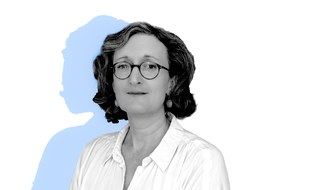 © Claudia Wittmann
© Claudia Wittmann
Stellvertretende Sachgebietsleiterin
NameAngela Böhm M.A.
Referentin Karriereentwicklung, TUD Young Investigator, ÖA
Eine verschlüsselte E-Mail über das SecureMail-Portal versenden (nur für TUD-externe Personen).
Besuchsadresse:
Graduiertenakademie Mommsenstraße 7
01069 Dresden
Sprechzeiten:
Termine nach Vereinbarung

